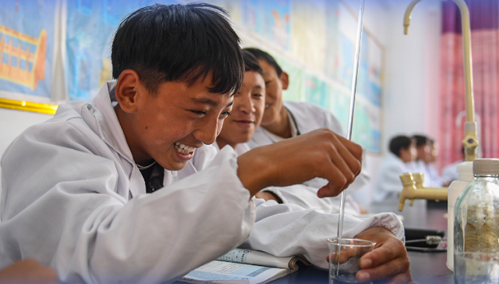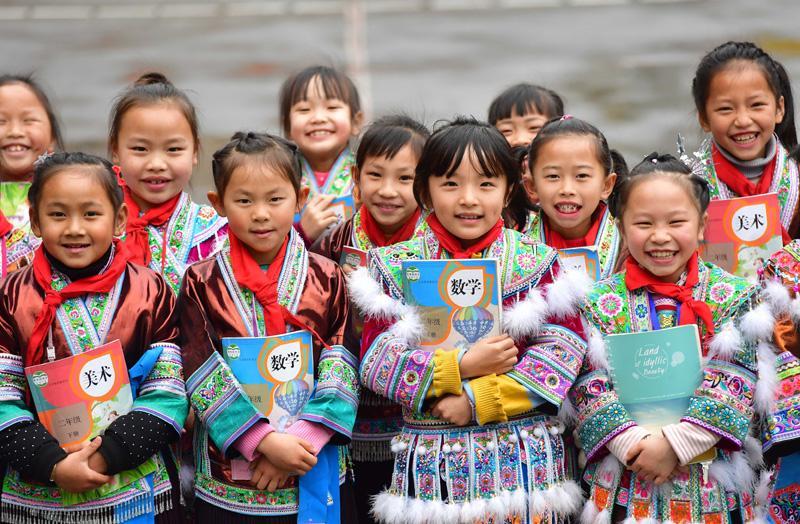How History of Civilization Shaped China's View on Human Rights?
Editor's Note: In any society, it is biased to treat human rights issues in isolation from history, culture and civilization. To understand China's view of human rights, we must put it in the context of the 5000-year history of Chinese civilization.
"Human rights" is one of the hot words widely discussed in the international community. China and the West have extensive similarities in the basic ideals and values of pursuing human rights, but there are differences in the understanding and realization of human rights between China and the West because of the influence of history, culture and social systems.
Similarities between Chinese and Western Views on Human Rights
As the common achievement of the development of human society and civilization, the foundation or origin of human rights is based on personality and the inherent dignity of human beings according to the Universal Declaration of Human Rights adopted by the United Nations General Assembly in 1948 and several subsequent core human rights treaties. Based on different understandings of how to use specific systems, policies and laws to realize human rights, people have formed their own views on human rights.
Although there are differences between Eastern and Western cultures, it must be pointed out that respect for human rights is the core content of all cultures. Since ancient times, different cultures have advocated respect for human beings to varying degrees, in which the idea of rule of law and human rights sprouted and grew. It is an objective law of social development that countries gradually deepen their understanding and appreciation of human beings and respect for human values.
Today, cooperation is the "common denominator" that benefits most people. Although there are differences in Chinese and Western concepts of human rights, we should not just focus on these differences. To respect and protect human rights is not to create rules artificially, but to safeguard the common crystallization of human civilization. Chinese and Western views on human rights have jointly constructed the respect and protection of human rights in the world, and established the principle of universality of human rights.
In practice, China has acceded to more than 20 international human rights treaties, and has always earnestly fulfilled its treaty obligations. China supports the constructive work of the UN Human Rights Council on the basis of the principles of impartiality, non-politicization, non-selectivity and non-confrontation, thus making important contributions to the development of human rights. It also provides experience and reference for other countries, including developing countries, to improve the level of human rights protection.
Just as different cultures need to respect, understand and be inclusive of each other, dialogue between countries on human rights issues also needs to be respectful, understanding and inclusive, so as to promote a fairer, just, inclusive and reasonable global human rights governance.

The History of Chinese Civilization Contains Precious Cultural Resources of Human Rights
The 5,000-year-old history of Chinese civilization has shaped China's view on human rights, firstly by shaping the way Chinese people think about human rights issues. The defining feature of Chinese civilization and philosophy is that they emphasize holistic thinking and macro-analysis, integrating all relevant factors into an interrelated whole from a systemic point of view, which is not quite the same as the micro-analysis in Western societies.
Some Western countries often talk about human rights in isolation, but China has never advocated thinking or talking about human rights in a simple and isolated manner. To the Chinese people, human rights cause is an integral part of the national development and is integrated into the overall development path. Democracy, the rule of law, and development are the three basic factors in researching the development path of human rights. The three factors cannot be advanced in isolation, but must be mutually reinforcing and closely linked. Such holistic thinking is deeply rooted in Chinese cultural tradition.
China has developed its own view on human rights in the process of integrating the basic tenets of Marxism with China's specific realities, especially with China's fine traditional culture.
The 5,000-year-old history of Chinese civilization contains precious cultural resources of human rights. For example, China's traditional culture includes the people-based thought, the civil rights thought, and the human rights thought which advocates caring for women, children, the aged and so on.
Beginning with Confucius, the Chinese people have emphasized that "human beings should be benevolent," putting the care and obligation of the individual to others at the top of social construction. To this day they continue to emphasize the interconnections between individual and collective rights, and between rights and obligations. The fine traditions of helping the poor and the weak, respecting the aged and cherishing the young, and shouldering responsibility for the whole nation, which have been inherited from the history and culture, have also had a positive impact on the development of human rights in China.
In terms of the development of human rights nowadays, on the one hand, the fulfillment of rights must respect cultural traditions and take social acceptability into consideration. On the other hand, there is also the problem of sublating culture. In other words, the culture of respecting and safeguarding human rights is a new social culture, based on established cultural traditions but with higher development requirements.
Cultural sublation exists in both Eastern and Western cultures. In ancient Rome, people referred to a man with citizenship; women did not enjoy citizenship, nor did slaves or children have independent personalities. Generally speaking, both Eastern and Western societies need to move forward on the basis of passing on the best of traditional culture and to abandon the backward parts of tradition.

The Correct Approach to Addressing Human Rights Issues
The United Nations has always advocated for the integrity of human rights, emphasizing their indivisibility, interdependence, and mutual reinforcement. No right should be negated or prioritized over another.
The Chinese culture's view on human rights aligns with the concept promoted by the United Nations. The Chinese culture of respect, inclusiveness and harmony, along with its holistic thinking of human rights, provides profound implications for the dialogue on human rights development in the world today.
The ideological disputes in the field of human rights have existed for a long time, and both Eastern and Western cultures share concepts of respecting individuals, promoting cooperative development, and resolving disputes peacefully. How should the international community focus on human rights?
Firstly, starting from domestic laws, countries should respect not only the rights of their own people but also the aspirations of other countries for survival and development. Secondly, in response to difficulties, threats, challenges, especially global risks, countries need to engage in constructive cooperation. Attacks and sanctions have never been the correct approach to addressing human rights issues. Dialogue among countries should respect and embrace differences as well as make continuous efforts to depoliticize the discussions.
The views don't necessarily reflect those of DeepChina.
The author is Huawen LIU, deputy director, researcher, and doctoral supervisor of the Institute of International Law, Chinese Academy of Social Sciences.
